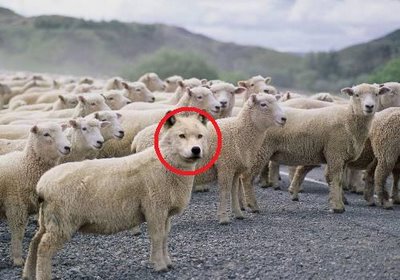

"The problem is, such patent consultants or practitioners or whatever they call themselves are rarely independent and impartial observers."When it comes to patent advisors, their motivation is usually to get more business or "returning customers". This means that advice would likely gravitate towards lawsuits, even futile ones that cannot be won. The problem is, such patent consultants or practitioners or whatever they call themselves are rarely independent and impartial observers. They're personally involved and they're immersed in a particular industry that relies on certain activities -- a subject we shall cover separately in our next post.
Patent attorneys and lawyers are typically in the 'business' of advising on how to manage the mess which they themselves create (or at least perpetuate); we say so with no intention of offending anyone in particular. It's just putting the simple truth out there. Sure, there are some attorneys and lawyers who are honest and with great integrity (some of them send us information and material); some are willing to express the occasional dissent towards patent maximalism -- at great risk of being framed "traitors" to their profession. But they're the exception rather than the norm. They won't be the ones to become abundantly wealthy.
"The latter -- prior art -- is very important as it helps document the history of science and credit/attribute the correct people for their contribution to the sciences."To give a couple of examples from several hours ago, over at Patent Docs they now market or promote some upcoming 'webinars' ("Patent Portfolio Management" and "Post-Sale Restrictions"), as they typically do on a Sunday. The real (underlying) purpose of these is to spur more patent activity, e.g. applications, sales, lawsuits. It's quite a departure from the original/intended goal of patents. Nowadays it's not even inventors who write their patents; it's typically law firms.
Another blog which is more moderate (in our experience it is neither dishonest nor extremist at all) speaks of general tips, e.g. Charles Bieneman on drafting of patents and prior art (relevant to 35 U.S.C. €§ 102). The latter -- prior art -- is very important as it helps document the history of science and credit/attribute the correct people for their contribution to the sciences. As Florian Müller noted when the EPO blocked Techrights (with tens of thousands of articles that sometimes potentially cover prior art), denying examiners access to information which may be relevant to prior art means that the EPO quit caring about facts and is nowadays in bed with the patenting and litigation 'industry'. We're quite certain some EPO insiders can relate to this sentiment. Well, two weeks from today their President will be António Campinos, who does not come from a law firm (unlike Mr. Iancu in the US) but has background in banking, i.e. money-making. Once upon a time EPO Presidents were scientists. ⬆